Published on: 22/02/2022

After a long hiatus, the in-person WASH Debates are back! These events provide an informal platform for Dutch organisations and professionals working in the international water sector to connect and to discuss the latest developments and trends in the sector.
The WASH Debate focused on answering the following questions:
Welcome words
John Butterworth, IRC
Introduction
Stef Smits, IRC
The Dutch vision statement for SDG6 and beyond
René van Hell, Ministry of Foreign Affairs of the Netherlands
Case studies
Panel discussion with questions from the audience
Conclusion from the discussion
Stef Smits, IRC
Closing remarks
John Butterworth
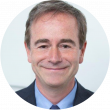 René van Hell
René van Hell
Director Inclusive Green Growth
Ministry of Foreign Affairs of the Netherlands
Former Netherlands Ambassador to Hungary. Starting in November 2012, he was Director for International Business at the Netherlands Ministry of Foreign Affairs. Earlier he was appointed in that position in December 2011 at the Ministry of Economic affairs, Agriculture and Innovation.
He served as Deputy Director for Trade Policy and Global issues at the same ministry. He worked from 2004 until September 2008 as Head of Economic Division at the Netherlands Embassy, Washington, DC.
From 2000 till 2004 he was the head of an Economist Team at the Economic Policy Department of the Ministry of Economic Affairs, in The Hague. He also worked as an economist and advisor at the Ministry of the Interior and Kingdom Relations, the Permanent Representation of the Netherlands to the European Union and was Advisor Energy, Development Cooperation and Budget issues at the European Parliament, Brussels/Belgium, Strasbourg/France.
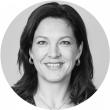 Esther de Vreede
Esther de Vreede
Director of Programmes
Simavi
After 15 years of working and living abroad, Esther “landed” back in the Netherlands at the beginning of 2017. Previously she worked as a freelance strategic advisor, and before that worked for the Swiss Water & Sanitation NGO Consortium, Caritas Switzerland, IRC and Oxfam Novib.
Simavi implements over 20 different programmes across South East Asia and Sub-Saharan Africa. They work with local partner organisations that are rooted in and understand their communities and the local context. They strengthen the capacity of civil society organisations to represent the health needs and rights of communities at local, national and international levels. In doing so, support civil society in its crucial role of making sustainable changes towards a healthy life for all.
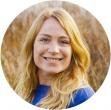 Anke Verheij
Anke Verheij
Programme Coordinator
WaterWorX
Anke is a water expert with professional experience in the fields of integrated water resources management, urban drinking water supply and governance in Asia and Africa. She’s currently working at VEi as Programme Coordinator of the WaterWorX programme, a programme that brings together all 10 Dutch water utilities and 39 water operators in developing countries to provide 10 million people with sustainable access to clean drinking water and/or sanitation services through Water Operator Partnerships (WOPs). Anke has been involved with WOPs for five years, of which she spent two years in Vietnam implementing the WOP ‘Towards Climate Resilient Water Supply in the Southwestern Mekong Delta’.
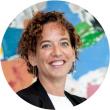 Marieke van Nood
Marieke van Nood
Regional Manager East Africa and Asia
World Waternet
Marieke studied Civil Engineering at the University of Technology in Delft. She is currently Regional Manager for Asia and East Africa at World Waternet, a foundation linked to Waternet, the water company of Amsterdam and surroundings. She has over 15 years of experience in sustainability issues, including integrated water resources management.
After a side-step into the energy and waste sector, she now seizes the opportunity to contribute to water projects in a developing context. With her enthusiasm and capability to separate side issues from main issues, she is very well able to get to the bottom of water issues and make use of the relevant knowledge and expertise of Waternet Experts, in order to find suitable and sustainable solutions abroad.
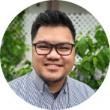 Michael Gnilo
Michael Gnilo
Water and Sanitation Specialist
UNICEF
Michael is a WASH Specialist based in NYHQ and supports UNICEF’s Sanitation and Hygiene programmes globally including Menstrual Health and Hygiene. He is the WASH team’s programme focal point for linkages with the Nutrition team at UNICEF headquarters. Michael started his career as a medical doctor and public health practitioner.
He has an extensive background in development work and emergency response with experience spanning across multi-lateral organisations, NGOs, government and academia. He started his career in UNICEF in 2010 as a Nutrition in Emergencies officer setting up 14 outpatient centers and 2 hospitals to manage severe acute malnutrition. He has been working with UNICEF for 12 years across the areas of WASH, Health, Nutrition and Communication for Development with a specific focus on systems building, private sector engagement, community mobilisation, behaviour change and social norms.
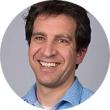 Stef Smits
Stef Smits
Head of IRC Consult
IRC
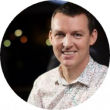 John Butterworth
John Butterworth
Director of the Change Hub
IRC